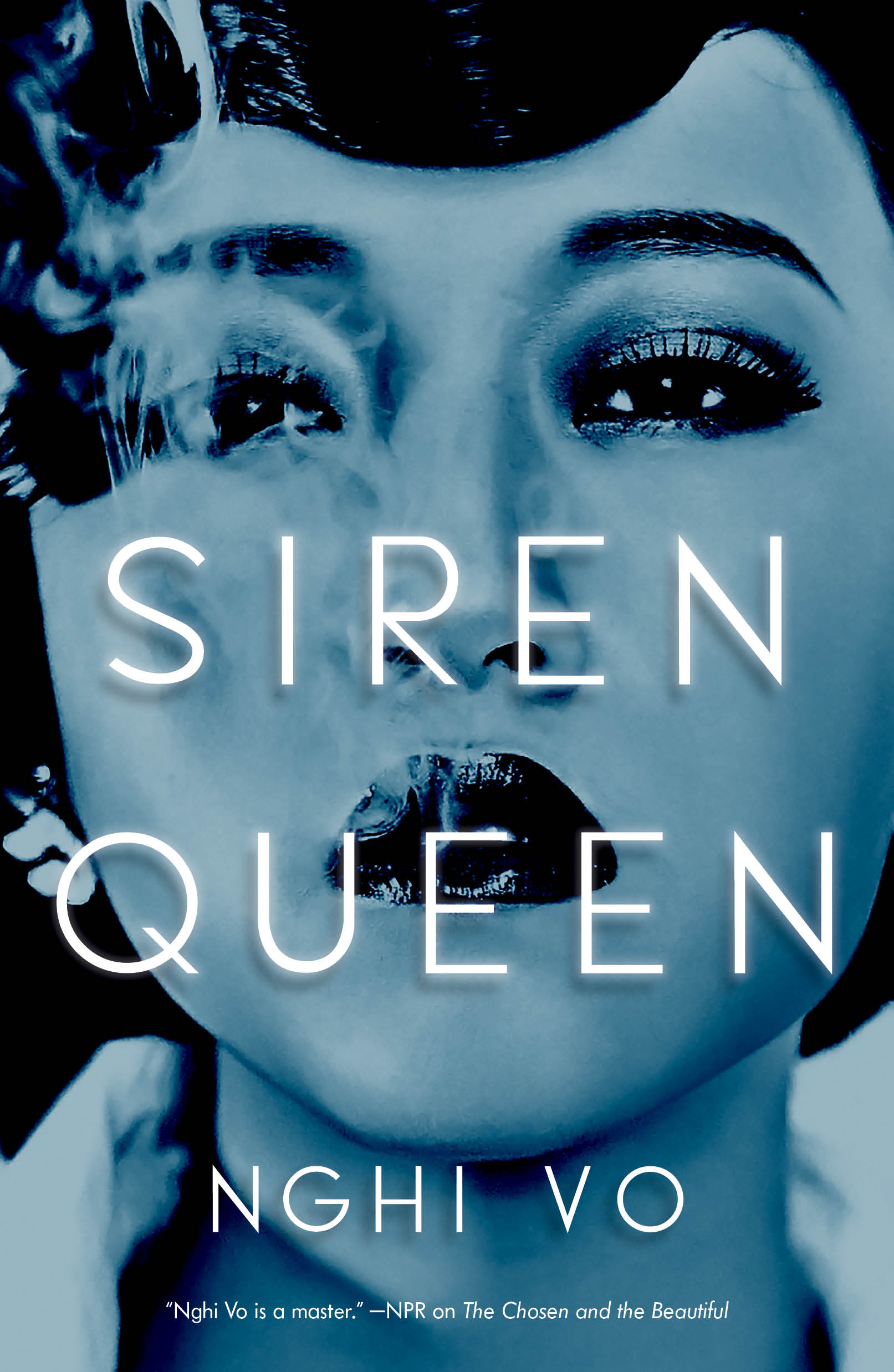Everything Everywhere All at Once (2022, dir. Daniel Scheinert and Daniel Kwan) is a smashing triumph, and the best and most creative film to hit theaters in a long while. Every element works. Its multiverse-hopping visuals are both grounded and dazzling. Its fight scenes make hilariously inventive use of mundane objects like staplers, goldfish bowls, fanny packs, and two deeply traumatizing Best Auditor trophies. Its leads—Michelle Yeoh, Stephanie Hsu, and Ke Huy Quan, whose performance will go down in history as one of the best acting comebacks of all time—nail every punch and punchline. What delights me most, however, is how comfortably Everything sits within its hybrid identities and influences. It’s a genre-hopping visual feast. It volleys casually between English, Mandarin, and Cantonese in the same conversation. It invokes Ratatouille, 2001: A Space Odyssey, and classics by Wong Kar-wai all in the same breath—sometimes in the same kick.
Everything is not an Asian diaspora film obsessed with justifying or explaining itself as an Asian diaspora film. Everything does not spend time debating how Western or Eastern it should be—indeed, Everything does not consider diasporic tensions to be tensions at all. Everything is simply everything; and it arrives assuming, correctly, you’re down for the ride.
I spend a terrible lot of time thinking about diaspora, identity, and art. So, too, do a lot of Asian diaspora filmmakers. Jon M. Chu’s Crazy Rich Asians (2018), Lulu Wang’s The Farewell (2019), and most recently Domee Shi’s Turning Red (2022) all feature protagonists grappling with tense and fraying ties to an identity overdetermined by a purported motherland. These themes define the classics of the Asian American film canon—Better Luck Tomorrow (2002), The Joy Luck Club (1993), and Eat a Bowl of Tea (1989). Certainly you can read Everything as another entry in this genre, and many critics have done so. Laura Zornosa argues the film speaks directly to the linguistic and cultural divides between immigrant generations. Nancy Wang Yuen locates in Michelle Yeoh’s Evelyn a “rare, complex portrait of a middle-aged Asian American woman…an Asian American woman laboring to shed intergenerational trauma in a country that often treats me like I don’t belong.” Jeff Yang makes the argument (a bit strained, I think) that Everywhere functions as a metaphor for the multiplicity and heterogeneity of Asian America as an imagined community still coming into being.
In any case, I posit that we might also read Everything as an evolution in the genre—a film that, for once, does not treat hybridity from the outset as a problem that needs solving. Everything, refreshingly, has a plot that, prima facie, has nothing to do with cultural anxieties. It treats its polylingual immigrant family as something its audience might as well just get used to, and juggles between accents and degrees of fluency with glee (“When did he get so good at English?” Stephanie Hsu’s Joy demands of the alpha-verse version of her grandfather). It careens happily between cultural settings: a family-owned Laundromat, a nondescript office building, an opera hall, a cozy apartment that probably smells like ketchup and mustard, and a Wong Kar-wai-inspired theatre back alley seeped with cigarette smoke and neon lights. To me, what’s most refreshing about Everything is that it at last gives us a diaspora movie that neither tortures the protagonist with choosing which country to which to cast their allegiance, nor seeks catharsis in either successful assimilation or some authentic reunification with the motherland.
As I left the theatre, I thought to how a friend seeking reading recommendations recently told me she was tired of reading the Amy Tans and Maxine Hong Kingstons of the Asian American literary canon because she was tired of being reminded constantly that she wasn’t from here. “God,” she said, “I want to read Asian American writers talking about something other than how they don’t speak good Chinese and don’t get along with their parents.” This sentiment doesn’t disparage all the necessary and important works that have to date defined the canon. But it expresses a desire—fairly widespread, I think—to find creative identity in more than just non-belonging. What happens next?
I thought of Rey Chow’s concept of the “myth of consanguinity,” the over-reliance of diaspora artists on such myths to find creative meaning, and Ien Ang’s articulation of how such “naturalized and fictive notions of kinship and heredity” are often in fact a reduction of agency: “the fiction of racial belonging would imply a reductionist interpellation (in the Althusserian sense of the term) that constructs the subject as passively and lineally (pre)determined by blood, not as an active historical agent whose subjectivity is continuously shaped through his or her engagements within multiple, complex, and contradictory social relations that are overdetermined by political, economic, and cultural circumstances in highly particular spatiotemporal contexts” (Ang 2013, 69). And I thought to Shu-mei Shih’s argument in her seminal essay “Against Diaspora”: “Diaspora has an end date…Everyone should be given a chance to become a local” (Shih 2013, 37). Chow, Ang, and Shih are arguing, on a most basic level, that writers of Chinese heritage should not feel bound by blood to create art about diaspora and diaspora only. If we tire of those conversations, possibly we can drop it all and explore something else.
It took, of course, time for us to get here. I’ve always thought Shih’s articulation was overly optimistic. Diaspora perhaps does have an end date—but it’s never an easy journey, nor is the decision to become local entirely up to us. We cannot, after all, magically decide how we are perceived. Ke Huy Quan’s journey to his hopefully-award-winning turn as Waymond says it all: After starring roles as Short Round in Indiana Jones and the Temple of Doom (1984) and Data in The Goonies (1985), Quan stepped back from acting for several decades as he grew disillusioned with the roles available to him—an ethnically Chinese refugee from Vietnam. (“By the time I was in my early 20s, the phone had stopped ringing,” he told Robert Ito for the New York Times. “And then my agent calls me: There’s this role. It was three lines, it was like a Viet Cong role. And I didn’t even get that.”) It was the smashing success of Crazy Rich Asians (2018) that convinced Quan to get back into acting. He asked a friend to represent him as an agent; two weeks later, he auditioned for the leading role of Waymond. (If there is any justice in the world Quan will be showered with awards nominations this time next year.)
Buy the Book


Siren Queen
Everything is a film that could only arrive at this moment. It took Crazy Rich Asians and all the frenetic discourse over what it said about diaspora and representation, whether its fairytale ending offered a pragmatic solution to viewers who felt cut off from their heritage, and how authentic it was or wasn’t, before we could get to this point. It took the monumental successes of The Farewell, Shang-Chi, Minari, The Half of It, and Turning Red to slowly convince gatekeepers and audiences that films by, and about, the Asian diaspora could be profitable and awards-worthy. But oh, what a delight to be here.
Certainly folks will write dozens of deep dives into what Everything has to say about intergenerational trauma, diasporic identity struggles, and Asian American representation, misrepresentation, belonging, and un-belonging. It’s all there in the text. I could write about the condescension with which Jamie Lee Curtis, as an IRS agent with a fondness for almond cookies, enunciates, “I thought your daughter was coming to translate.” I could write about the pain and misunderstandings between Gonggong and Evelyn transferred to the relationship between Evelyn and Joy. I could write about how Evelyn’s strained attempts to reach out to Joy while literally hiding in a closet—“I know you have these feelings…but it’s not your fault. Not your fault.”—speak to a hidden iceberg of mental health stigmas and depression and suicide rates among AAPI communities. I could write about how Ke Huy Quan’s brave, kind, and vulnerable portrayal of Waymond refutes stereotypes of emasculated Asian men without resorting to hypermasculinization. The Daniels in all their maximalist splendor have given us a veritable feast of themes, arguments, and images to dissect.
Nothing I have written is to imply that Everything is not a diaspora story. (If anything, it is the metatextual summation of all its forerunners.) I argue only that Everything is a much-awaited step past a certain kind of diaspora story: one stuck on justifying its existence to the audience, one that starts by assuming discomfort with hybridity, one that centers the conflict around the protagonist being forced to choose either-or. What if we instead leaned hard into that hybridity? What if we dispensed with all the hand-wringing about cultural authenticity and representation and loyalty and over-explaining ourselves to a white audience who might not get where we’re coming from and just…stuck some googly eyes on rocks? What might we be freed to create, if we weren’t so caught up in negotiating our position between two homelands? A family drama, perhaps. A hot dog love story. A mother-daughter story. A verse-jumping sci-fi epic. A reflection on nihilism and the overwhelming stimulation of the internet age. A screed against everything bagels.
Or perhaps all of the above—everything, everywhere, all at once.
Works Cited:
Ang, Ien. “Can One Say No to Chineseness? Pushing the Limits of the Diasporic Paradigm,” 57—73. New York: Columbia University Press, 2013.
Shih, Shu-mei. “Against Diaspora: The Sinophone as Places of Cultural Production.” In Sinophone Studies: A Critical Reader, Ed. Shu-Mei Shih, Chien-Hsin Tsai, and Brian Bernards, 25—42. New York: Columbia University Press, 2013.
Rebecca F. Kuang is a Marshall Scholar, translator, and the Hugo, Nebula, Locus, and World Fantasy Award nominated author of the Poppy War trilogy and the forthcoming Babel. She has an MPhil in Chinese Studies from Cambridge and an MSc in Contemporary Chinese Studies from Oxford; she is now pursuing a PhD in East Asian Languages and Literatures at Yale.










